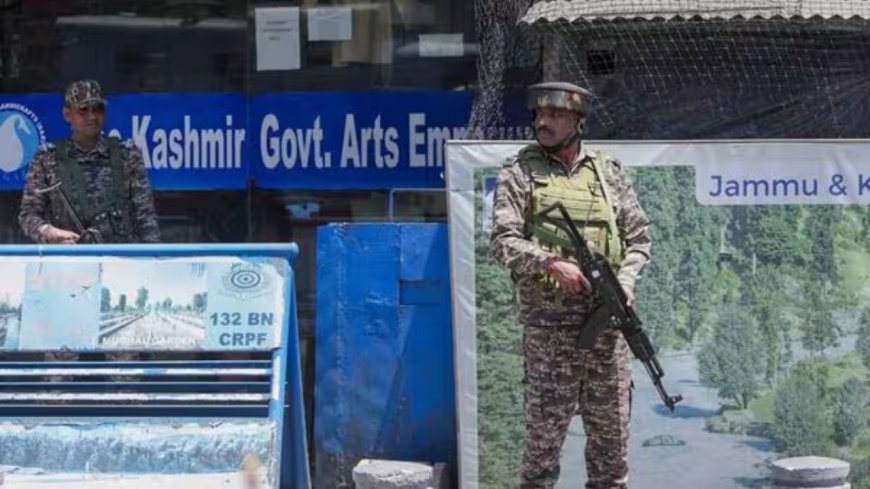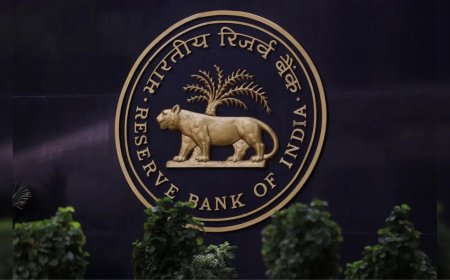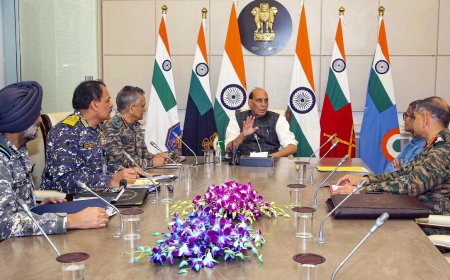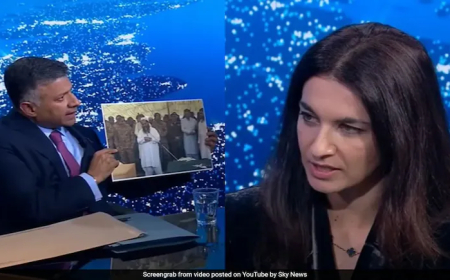India's United Front: Shashi Tharoor, Eknath Shinde Among 7 MPs Leading Global Anti-Terror Delegations
In a historic bipartisan move, India dispatches seven all-party delegations, led by MPs including Shashi Tharoor and Eknath Shinde, to key nations to convey its zero-tolerance stance against terrorism post-Operation Sindoor.

🇮🇳 India's United Front: Shashi Tharoor, Eknath Shinde Among 7 MPs Leading Global Anti-Terror
Delegations
Introduction
In a significant diplomatic initiative, India is set to dispatch seven all-party delegations to key global capitals. This move aims to present a unified stance against terrorism, particularly in the aftermath of Operation Sindoor and the Pahalgam terror attack. Notably, the delegations will be led by prominent Members of Parliament (MPs) from both ruling and opposition parties, including Shashi Tharoor and Eknath Shinde.
Background: Operation Sindoor and the Pahalgam Attack
On April 22, 2025, a devastating terror attack in Pahalgam resulted in the loss of 26 lives. In response, India launched Operation Sindoor on May 7, targeting terrorist infrastructure across Pakistan and Pakistan-Occupied Jammu and Kashmir. The operation reportedly neutralized over 100 terrorists, showcasing India's commitment to combating cross-border terrorism.
The All-Party Delegations: A Unified Diplomatic Effort
Recognizing the importance of a cohesive international message, the Indian government has organized seven all-party delegations to visit key partner countries, including members of the United Nations Security Council. Each delegation comprises MPs from various political parties, senior diplomats, and other distinguished individuals.
Delegation Leaders:
-
Shashi Tharoor (Indian National Congress)
-
Ravi Shankar Prasad (Bharatiya Janata Party)
-
Sanjay Kumar Jha (Janata Dal United)
-
Baijayant Panda (Bharatiya Janata Party)
-
Kanimozhi Karunanidhi (Dravida Munnetra Kazhagam)
-
Supriya Sule (Nationalist Congress Party)
-
Shrikant Eknath Shinde (Shiv Sena)
These leaders represent a broad spectrum of India's political landscape, emphasizing the nation's collective resolve against terrorism.
Objectives of the Delegations
The primary goals of these delegations are:
-
Conveying India's Zero-Tolerance Policy: Articulating India's firm stance against terrorism in all its forms and manifestations.
-
Building International Consensus: Engaging with global partners to garner support and cooperation in combating terrorism.
-
Highlighting Recent Developments: Providing insights into the Pahalgam attack and Operation Sindoor to inform and update international stakeholders.
Political Significance: Bipartisanship in Action
The inclusion of opposition leaders, such as Shashi Tharoor, underscores the bipartisan nature of this initiative. Tharoor expressed his honor at being invited to lead one of the delegations, stating, "When national interest is involved, and my services are required, I will not be found wanting. Jai Hind!"
This collaboration reflects a rare moment of unity in Indian politics, where national security transcends party lines.
International Engagements: Countries on the Itinerary
The delegations are scheduled to visit several key nations, including:
-
United States
-
United Kingdom
-
United Arab Emirates
-
Japan
-
South Africa
These countries play pivotal roles in global security and diplomacy, making them strategic partners in India's anti-terrorism outreach.
Government's Perspective
Union Minister for Parliamentary Affairs, Kiren Rijiju, emphasized the importance of this initiative, stating, "In moments that matter most, Bharat stands united. Seven All-Party Delegations will soon visit key partner nations, carrying our shared message of zero-tolerance to terrorism. A powerful reflection of national unity above politics, beyond differences."
India's decision to deploy all-party delegations led by prominent MPs signifies a robust and unified approach to international diplomacy in the fight against terrorism. By presenting a cohesive front, India aims to strengthen global partnerships and reaffirm its commitment to maintaining peace and security on the international stage.
What's Your Reaction?
 Like
0
Like
0
 Dislike
0
Dislike
0
 Love
0
Love
0
 Funny
0
Funny
0
 Angry
0
Angry
0
 Sad
0
Sad
0
 Wow
0
Wow
0












































































